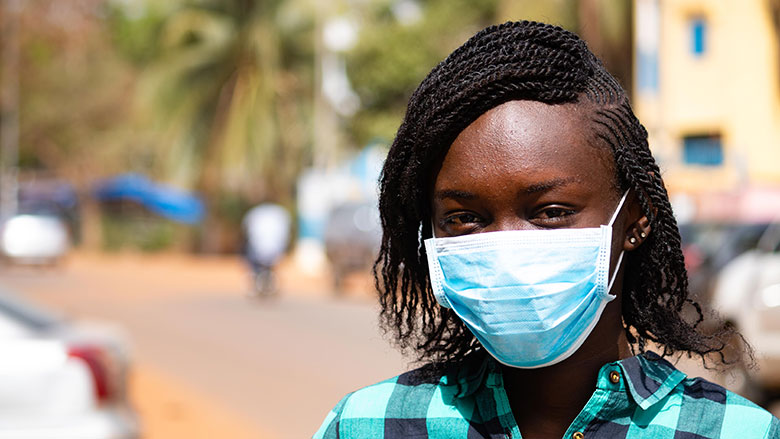In 2021, Africa’s recovery remains hampered by low vaccination rates and limited resources to continue providing financial assistance to vulnerable households and firms. The pandemic continues to take a toll on African lives and has pushed up to 40 million people into extreme poverty. Women, youth, low skill labor and those in the informal sector remain most affected by lack of access to social safety nets and income opportunities.
Faster vaccine deployment would accelerate the region’s growth to 5.1 percent in 2022 and 5.4 percent in 2023—as containment measures are lifted faster and spending increases. The World Bank estimates that every month of delay costs the African continent $13.8 billion in lost gross domestic product.
As part of the global response since the start of the COVID-19 crisis, the World Bank Group has committed over $157 billion to fight the impacts of the pandemic, which includes more than $39 billion for African countries to help them strengthen health systems and services, establish and expand social safety nets, and weather the economic impacts of the crisis. More operations are under preparation for FY22.
Our response efforts are focused around four main areas: saving lives, protecting poor people, protecting and creating jobs, and building back better.
Saving Lives
The World Bank has taken fast action to help African countries strengthen their pandemic response and health care systems and is now stepping up its support on vaccine purchase and deployment. With the vaccine roll-out underway in many African countries, ensuring an adequate supply of affordable COVID-19 vaccines is a priority for the region.
- The World Bank has committed $2.92 billion for the procurement and deployment of COVID-19 vaccines in 41 countries in the region.
- This emergency vaccine financing complements ongoing COVID-19 emergency projects in 36 countries (amounting to $988 million) which focus on strengthening prevention, expanding testing and providing medical equipment such as portable ventilators, oxygen concentrators, personal protective equipment and masks. The projects also support the improvement of healthcare facilities, community engagement campaigns, health systems and coordination.
- With just over 4% of Africa’s people vaccinated, the World Bank is partnering with the Africa Union to support the Africa Vaccine Acquisition Trust (AVAT), which will help countries purchase and deploy vaccines for up to 400 million people. AVAT vaccine deliveries of Johnson&Johnson doses started the first week of August 2021, with 5 million doses delivered in the first month of implementation. Following the timelines provided by AVAT, new deliveries have been on track, with 13.54 million doses already delivered to countries in Africa and CARICOM as of November 5th. Of the 13.12 million doses delivered to Africa, 10.36 million doses are being financed (or will be retroactively financed) through WB projects in 26 countries.
